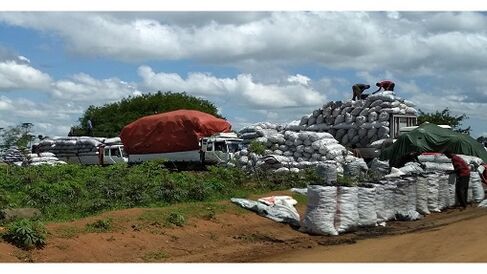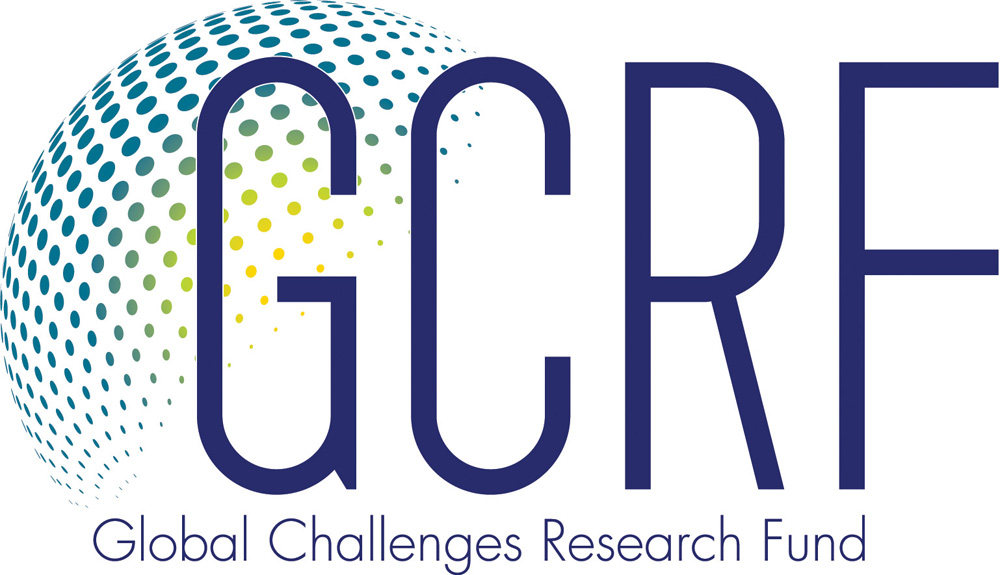GCRF GIAA Impact Fund: Dr Adam Branch

Transforming Policy and Expanding Public Engagement around charcoal-driven deforestation in Uganda, PI: Dr Adam Branch (Department of Politics and International Studies)
Across large areas of Africa, charcoal remains the primary source of urban energy for cooking and heating, and its production also drives devastating deforestation. Thanks to Dr Adam Branch’s research, we understand much more about the scale and nature of Uganda’s charcoal trade. Now, using the GIAA Impact Fund, evidence is being translated into political action to reduce the ecological damage wrought by charcoal.
For the past 20 years, Dr Adam Branch of the Department of Politics and International Studies has immersed himself in Ugandan politics, working first on the civil war that ravaged northern Uganda between 1986 and 2006, then on development and now on the politics of charcoal.
“Until a couple of years ago, I didn’t know anything about charcoal,” he recalls. “I was interested in the intersection of political violence and international intervention, shifting from humanitarianism during the war to development interventions post war. Now, I study climate change interventions – and in this part of Africa that means understanding the politics of charcoal.”
Whereas fossil fuels dominate energy politics in many areas of the world, charcoal dominates debate in Uganda and most parts of Africa. Here, charcoal is the primary urban energy source, fueling 80-90% of cooking and heating. Demand is rising by 3–6%, driving devastating deforestation, yet when Adam started studying charcoal, he found accurate information hard to come by.
“The scale of deforestation appears to be massive. You can travel through areas that you visited five or ten years ago and not recognise them. There are stories of entire forests disappearing,” he says. “Part of the problem is that much of the industry is semi-legal or illegal, and it’s a regional trade covering South Sudan, Kenya and Uganda, so it’s hard to get a fix on it.”
Determined to get a more accurate picture of the charcoal trade, Adam gathered data using fieldwork, focus groups and community dialogues in the northern Ugandan district of Acholi. His results, published in Geoforum in 2018, revealed that rather than small-scale domestic producers, the charcoal trade was dominated by industrialised extraction – ecological violence that in many ways echoed the military violence that preceded it.
Armed with better data, Adam set out to catalyse change in charcoal. In mid-2018, thanks to ESRC IAA funding, he organised a major charcoal conference in Acholi and funded a set of community forums as well as a project manager in Uganda. Later the same year, he won GCRF IAA funding to continue the work.
In the past, deforestation has been blamed on small-scale domestic charcoal producers, so people promoted technical solutions such as agroforestry or more efficient stoves and kilns. By contrast, Adam’s research reveals that charcoal is a political issue requiring altogether different solutions. “You need a more holistic understanding of the politics involved – the larger structural economic, political and business forces at play – to design effective solutions,” he explains.
He designed a three-pronged approach: establishing the Acholi Technical Working Committee on Charcoal (ATWCC) to develop a district-level charcoal policy; working at a community level with the civil-society activist group Our Trees, We Need Answers; and setting up a network of community environmental monitors with Human Rights Focus, a group which had been involved in Adam’s initial research.
Each prong supports the others, the ATWCC drawing together religious leaders, cultural chiefs and security officers to draft the policy, Our Trees taking musicians and performance artists to local towns and villages where they draw huge crowds into the debate on charcoal, and HRF’s volunteers acting as the movement’s ‘eyes and ears’ to gather information and feed it up to district level.
“It’s going really well, and generating a huge amount of media attention. Hundreds of people come to the meetings and it’s creating a real buzz. The thing everyone’s talking about in northern Uganda is the environment, trees and charcoal,” Adam says. “Politicians come to the events, and see the value in demonstrating their environmental credentials, and other organisations are getting on board – it’s been hugely effective.”
He’s optimistic that once Acholi’s charcoal policy is passed, it’s likely to become a model for the rest of Uganda. “Success will be legislation that makes sense at district level, plus greater public interest in environmental activism,” Adam concludes. “Every time I go to community forums and stakeholder meetings, the response from civil society is huge. Deep in the villages – in communities which have seen charcoal trucks coming in to take away their forest – people want to talk about the problem and the solutions. That, for me, is the greatest reward.”
Funded by: GCRF Global Impact Acceleration Account 2018 University of Cambridge (EP/S515966/1)

